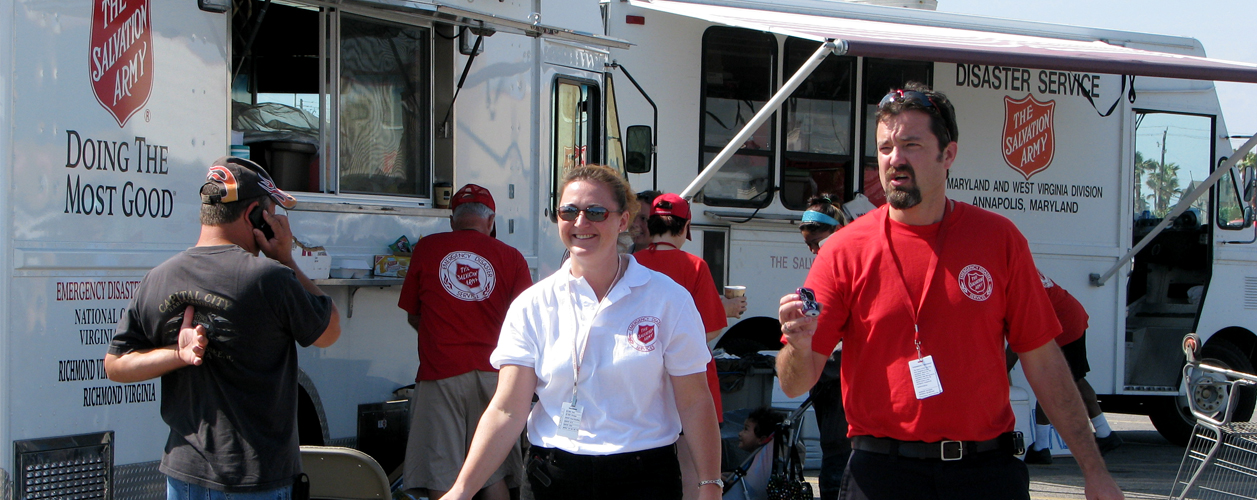Recharging the Soul
by Hugo Bravo

Chris Farrand, the Salvation Army’s regional Emergency Disaster Services (EDS) director for Massachusetts and Southern New England, talks about recognizing a sign from God, visiting COVID–19 patients in hotels, and lessons he learned from shepherding in England.
In my twenties, I lived in Northern England with my parents. They were stationed in the military. My mother’s office assistant was married to a man who ran a sheep farm, and through him, I got work as a shepherd. Every day with my shepherd’s crook and rifle, I’d go out to beautiful, rugged pastures, bordered by 100–year–old walls and tend to the sheep. I learned that being called God’s sheep is not always a compliment to us; sheep can be helpless creatures that require a lot of care. When left alone, they can literally suffocate each other for warmth. A shepherd has to be aware of his surroundings to get his sheep safely asleep at the end of the day. Just like those sheep, “the pastures” I face in my life can be overwhelming. I may not always be aware of every danger, but I always remember that I am led by the Great Shepherd—Jesus Christ.
I slow down to find God and listen to Him. Ten months into COVID–19, I was feeling the weariness of the situation in my bones and in my soul. But one day out of the blue, a member of my team said to me, “Chris, today the Lord put you in my heart, and I just wanted to know if you are doing okay.” This gentleman and I weren’t talking for the sake of catching up. His words were a sign from God; He had put this person in front of me to remind me of His love.
No matter how busy I am, I have to take time to share a dinner with my wife or help my seven–year–old son unlock new characters in his video games. Matthew 6:34 says, “Do not be anxious about tomorrow, for tomorrow will be anxious for itself.” It’s important to take time, no matter how busy we are, to step aside and recharge our souls. Being outdoors is one way that I recharge mine. I love taking my son and set of triplets hiking. I introduce them to hidden trails, wooden bridges or frozen ponds that wait for us to crack them with rocks. Doing these activities clears both my head and my heart.
Early during the pandemic, the Commonwealth of Massachusetts had many homeless people who tested positive for COVID–19 and had no place to go. They were eventually quarantined in empty hotels. I used my garage to store the food we took to them. I went into the hotels knowing that I was always only 20 or 30 feet away from someone who was infected. There are only a handful of times when I was scared to do my job; that was one of them. But it’s important to never feel paranoid or overwhelmed by a disaster. For 12 years, I have gone to meetings with emergency managers. I’ve responded to everything from five–alarm fires to storms and earthquakes. All of these smaller single events have given The Salvation Army EDS the foundation to execute the high–level work we’ve done during the pandemic.
I don’t fear the future because I know how God has orchestrated the past. While living in Chicago, I worked my way up from a dishwasher with no cooking skills to manager of my own events for up to 300 people. I remember rollerblading to work in my tuxedo while thinking, Is this really a blessing in my life? I see now that it was, because those jobs led me to the work I do. Today, I deploy and manage feeding operations for even larger groups than in my past. It’s fascinating to look back on my life and see how God has prepared me.

